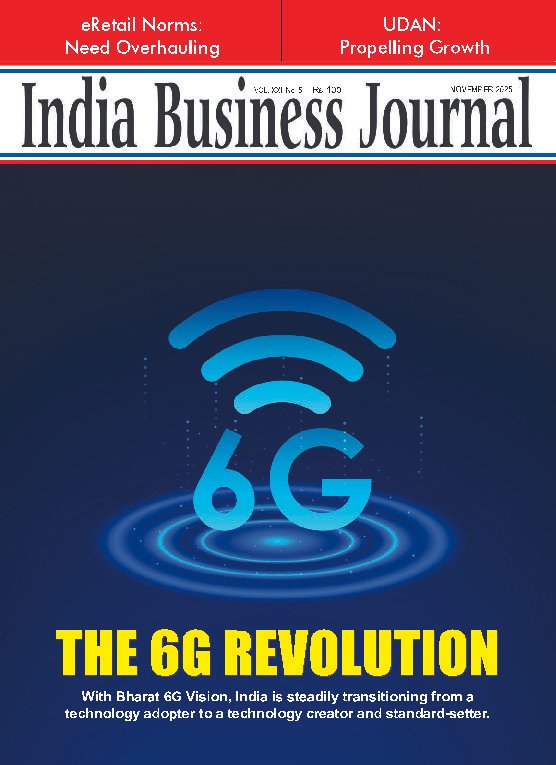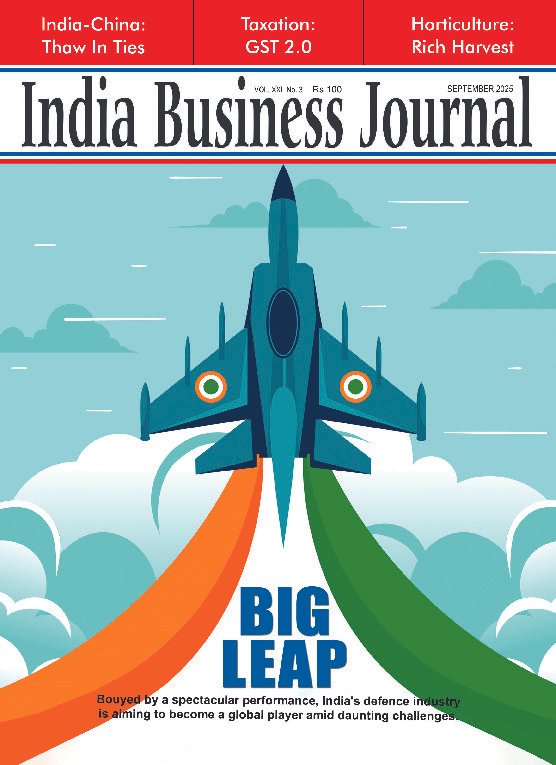MANAGEMENT MANTRA
“Keep Trying”: Piyush Raj Akhouri, Co-Founder, Bridgentech Consulting
- Sharmila Chand
- Sep 08, 2022

When
an engineer employs principles of management in his business, the result will
often turn out to be a grand success. An engineer is trained to think and act
logically and innovate intelligently. If an engineer adds the best management
practices to his logical thinking and innovative engineering, chances are high
that his business will scale greater heights.
Piyush
Raj Akhouri is doing just that. A seasoned enterprise sales professional-turned-entrepreneur,
the co-founder of Bridgentech Consulting has over years of experience across digital
products, banking, financial services and insurance (BFSI), retail and manufacturing
sectors.
An
alumnus of premier institutions in India, like MIT, Manipal (Mechanical
Engineering), SPJIMR, Mumbai (MBA), ESB Reutlingen, Germany and TU Munich,
Germany, Mr Akhouri has travelled across the globe, primarily working in
Western Europe, US and Indian subcontinent markets. He has built, managed and led
teams towards business growth and success. Mr Akhouri is interested in new
ideas and business plans worth investing.
When
not engaged in business, the Bridgentech chief also likes to sing and write. He
is a trained singer and published author and counts UI/UX design, business planning,
music, coaching and strategy as some of his passionate hobbies. In an
interesting interview with Sharmila Chand,
What, according to you, are five of your
management mantras?
1. It’s
Ok to try and lose. It’s not OK NOT to try and lose.
2. Customer
is the king as long as he behaves like one.
3. Respect
Seasonality, but continue to focus on improvement.
4. ‘No’
mostly means ‘not now’ in sales. Don’t give up.
5. Your
real competition should always be with YOU of tomorrow.
Do you play any game which helps you in
your career?
I
play chess for strategic focus. It often helps me not to lose focus on
forecasting, planning and real-time betterment of execution. It teaches that
patience and aggressiveness both can go hand in hand, and it also teaches that
competition is always going to be offensive, if you don’t focus on attacking
and defending. It also teaches that while your game improves with experiences,
competition can always throw in a new challenge.
Would you share with us the turning
point in your life related to your career?
I
was working as a management consultant for a firm recently and was trying to
build my startup on the side. My heart was more towards the startup, but it was
also important not to burden my own startup and therefore work for a living.
When I first got infected with COVID, it was a mild infection, and I still had
to finish tasks while being locked into home quarantine. Over the next few
days, I noticed that the management was trying to replace my work with someone
else, asking me for a handover, even though I was delivering my work. It was
hugely dependent on my skills, but they still wanted someone else to be up-skilled
quickly in case of my passing away. The word is polite cold-shoulder. That very
moment I understood that anybody can be replaceable in any job, and life is
really short to work on something you don’t like doing. Soon after I recovered,
I left the job and started to focus on revving my startup to newer heights.
What is the secret of your success?
The
secret of my success lies in my ability to learn, unlearn and share the learning.
What is your philosophy of work?
Hard
work and preparation are as much important as opportunity.
Is there any particular person you
admire who has inspired you?
I
highly admire Ratan Tata for a couple of obvious reasons. I strongly support
and abide by his philosophy that motivates entrepreneurs to take risks without
any hesitation and take criticism sportingly and positively, along with the spirit
of taking the team together. There are more such ideologies that inspire and
motivate me to become a better leader and person as a whole.
What is the best advice that you have got?
You
can’t do everything all by yourself. Even if you can, grow a tribe of
like-minded people.
What is your sounding board?
My
blog, articles and LinkedIn are my sounding boards.
Would you share with us some of your
favourite books and reason out why you like them?
I
like Strategy
and the Business Landscape by Pankaj Ghemawat for its ability to break down
problems into elements. Scott Adams’ The
Dilbert Principle is dear to me because
it shows how serious things can also be explained with humour and practicality.
I also admire Ethan M Rasiel’s The
McKinsey Mind.
How do you keep yourself fit?
I
am far from fit but working hard to get back in shape. Mental calmness can be
achieved by meditation.
What
are your five mantras for success in business?
1. Keep
trying.
2. Learn
from mistakes, and keep checks and balances.
3. Delegate
responsibly, and attach yourself to what you really love doing.
4. Spend
time wisely in work.
5. Respect
everyone to earn some back.
What message on management would you
like to give to youngsters?
The
best managers are the ones who like to get their hands dirty occasionally and
can lead by example. Don’t run after degrees, but earn some experience as an
executive while moving to management.
How would you define yourself in one sentence?
I
am a complete outsider trying to adapt to new business cultures. I fix the gaps
through people, answers and ideas.





















Report By
View Reporter News